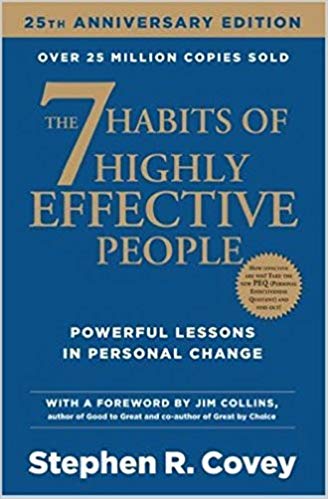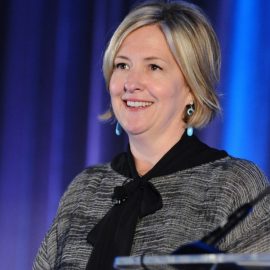

This article is an excerpt from the Shortform summary of "The 7 Habits of Highly Effective People" by Stephen Covey. Shortform has the world's best summaries of books you should be reading.
Like this article? Sign up for a free trial here .
So much of our personal growth and effect habits depend on our interactions with others. But how can we foster these relationships? And how can they help us grow and achieve our goals? That’s where Stephen Covey’s concept of an Emotional Bank Account comes in.
An Emotional Bank Account is a system of emotional deposits and withdrawals that helps build relationships. You have an emotional bank account in every relationship that’s unique. And by making deposits, or acts of kindness and love, you strengthen it. Acts of cruelty or betrayal are withdrawals, and weaken the relationship. You want to ensure you have a positive balance in these emotional bank accounts.
Working with Others
We saw on the Maturity Continuum that you can’t reach interdependence before achieving true independence; this is why the first three habits focus on tapping into your self-awareness and honing your self-control and self-discipline. Only once you have a clear understanding of your paradigms, principles, and goals can you effectively build relationships with other people.
And it’s worth the effort: Human relationships provide enriching and meaningful experiences, greatly improve your productivity, and help you learn and grow.
But human relationships can also cause you deep pain and frustration. Of course, you also cause yourself pain when you poorly manage yourself and your life, but this self-inflicted pain is chronic so you’ve probably gotten used to it; when someone else causes you pain, it feels more intense because it seems sudden and acute.
It’s important to remember that the acute pain you feel from interpersonal problems always stems from a chronic, underlying problem, so when you attempt to resolve the issue you must address the root, not the symptom.
Here’s an emotional bank account example. You made plans to see a movie with a friend, but something has come up that’s keeping you at work late and you have to cancel. You apologize to your friend, but she rejects you apology and lashes out. You are baffled and hurt — you couldn’t have anticipated this and it’s out of your control. But the deeper issue is that you have a track record of prioritizing work and other commitments over quality time with your friend, and she’s grown frustrated with your habit of changing and canceling plans.
Keep a Positive Balance in Your Emotional Bank Account
Every relationship comes with an Emotional Bank Account that stores the trust between two people. In nearly every interaction, each person makes deposits and withdrawals from the account: kindness, honesty, integrity, caring, and courtesy are all deposits, while disrespect, discourtesy, mistreatment, criticism, and betrayal are withdrawals.
If you’ve built up a large reserve, the other person will likely give you more grace and forgiveness when you have to make a withdrawal. However, if you have a very low balance or are overdrawn, you have little room for another withdrawal.
According to Stephen Covey, an Emotional Bank Account is as active as the relationship. If you see someone constantly — like a spouse or close friend — you must make consistent deposits with acts of kindness and respect, because there may be automatic withdrawals in your regular interactions (like your chronic lateness), some of which you might not even realize are withdrawing from the account. On the other hand, if you interact with someone sporadically, your balance will carry over from your last visit. Can you think of any Emotional Bank Account examples based on these types of interactions?
It’s possible to build up a positive trust balance in a low or overdrawn Emotional Bank Account, but it takes time. There are six things you can do to make substantial deposits.
Emotional Bank Account Deposit #1
Make an effort to understand the other person, and do things that are important to her. Some actions that you value and that would constitute a deposit for you — like going to a movie together — might not be a deposit for the other person. You must understand what’s important to the other person, and by virtue of you caring about that person, that makes it important to you.
(Shortform note: This is similar to the concept of Love Languages, which says that there are five ways of communicating love, each valued differently by different individuals: Words of Affirmation, Acts of Service, Receiving Gifts, Quality Time, and Physical Touch. Understanding how you express and interpret love helps you to ask for the kind of affection that is most meaningful to you, and understanding how your partner expresses and interprets love helps you to make deposits and recognize when she is showing you affection. To learn more about this, see our Shortform summary of The 5 Love Languages.)
Emotional Bank Account Deposit #2
Don’t underestimate the power of small actions. Small acts of kindness and caring can speak volumes and make large deposits into your Emotional Bank Account — for example, bringing your spouse flowers for no reason, or remembering your friend’s favorite meal and showing up with it for dinner. Similarly, small acts of disrespect and discourtesy can make large withdrawals.
Emotional Bank Account Deposit #3
Keep your promises. Don’t make commitments and promises lightly, because while keeping true to them makes big deposits, breaking them makes huge withdrawals. The infraction is even more severe when the promise you break was particularly important to the other person. On occasions when you absolutely have to break a commitment, explain the circumstances and ask to be pardoned from the promise.
Emotional Bank Account Deposit #4
Make sure you and the other person each understand your expectations of each other; this can include your and your spouse’s expectations of each other’s roles and goals, or your friend’s expectations of your availability in times of need. Whatever the context, unclear expectations create misunderstanding, frustration, disappointment, and tension, so explicitly state your expectations instead of assuming they’re understood — and shared — by the other person.
If you’re years into a relationship and the expectations were never laid out, you may need to clarify them. This can be extremely difficult (and awkward) and takes tremendous courage, but taking that leap can save enormous tension later and may even save the relationship from ultimately deteriorating.
Emotional Bank Account Deposit #5
Show your personal integrity by being honest, keeping promises, meeting expectations, and treating everyone with the same values and principles. One way to do this is to show respect and loyalty for people who are not present; if you gossip with your friend about someone else, how can your friend trust that you won’t gossip about her when she’s not around?
When you do make a withdrawal, sincerely and promptly apologize. A sincere apology actually makes a deposit into the Emotional Bank Account. However, if you are frequently apologizing or your apologies seem insincere, this withdraws from the account.
When you do something that hurts or shows disrespect for someone — whether or not it was unintentional — acknowledge the way you made the other person feel and admit that you are responsible for that. A sincere apology requires a sense of security and deeply held principles; insecure people struggle to apologize and admit their wrongs because their sense of worth is tied up in other people’s opinions, so instead they become defensive or rationalize their actions.
Emotional Bank Account Deposit #6
Love unconditionally. When you love someone unconditionally, you add to their sense of security and validation and they are empowered to live to their fullest capacity, with cooperation, self-discipline, integrity, and independence.
In contrast, when you put conditions on your love and affection, you cause them to behave reactively and defensively — unconsciously trying to prove their worth and independence through rebellion to your restrictions. Conditional love creates counter-dependency, a form of dependency at the lowest end of the Maturity Continuum.
Stephen Covey’s Emotional Bank Account examples can have many implications. In one example, a university dean dreams of his son attending the school where he works, where he and his parent and grandparent also attended. He’s saved money for his son’s tuition, and thinks it would be a wonderful experience for his son. However, his son feels that the issue has taken on so much weight that his father’s love is dependent on him attending that school — so in an effort to establish his own identity, the son rebels and tells his father he doesn’t want to attend the school. Although this hurts and disappoints the father, he eventually resolves to release his attachment to this dream for his son, and instead to love his son unconditionally. Over time, the son feels more secure in his father’s unconditional love, and ultimately decides — of his own volition — to attend the university.
Opportunities for Growth
In a relationship, every problem that arises is actually an opportunity to empower and deepen that relationship. In this way, any problem with P (the emotional, organizational, or other benefits that the relationship brings each person) is a chance to build PC (the healthy relationship that fosters P).
If your child comes to you with a problem, rather than being annoyed or burdened by it, consider it an opportunity to strengthen your relationship. The time and energy you spend working through that problem will make a major deposit in your Emotional Bank Account. Additionally, you and your child will likely both develop a better understanding of each other that will benefit your relationship moving forward.
This is also a critical concept in business, and you can probably think of plenty of emotional bank account examples in business: When a customer comes in with a problem or complaint, don’t be resentful or defensive. Instead, show a genuine desire to resolve the issue and go the extra mile in treating the customer well and providing excellent service. This response creates even greater customer loyalty and satisfaction that eclipses the initial problem.
Emotional bank accounts are an important part of the 7 habits and critical to your relationships with others. Building these relationships and maintaining positive balances can help you achieve your goals, and also can improve your self-image.
———End of Preview———

Like what you just read? Read the rest of the world's best summary of "The 7 Habits of Highly Effective People" at Shortform . Learn the book's critical concepts in 20 minutes or less .
Here's what you'll find in our full The 7 Habits of Highly Effective People summary :
- How to prioritize the hundred tasks you have to focus on the one or two that really matter
- The right way to resolve every disagreement and argument
- How to avoid burning out and succeed over 20+ years







Codependency study is a necessary tool for this article. Boundary concept hopefully is to be better read. Emotional Wounds are real wounds , so prevention is better than cure.